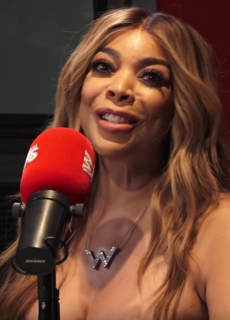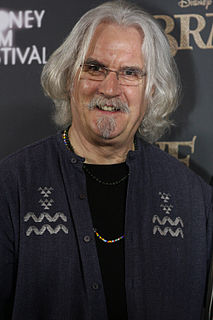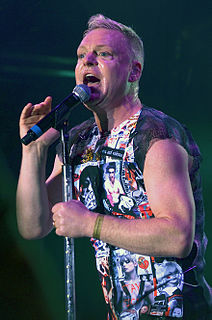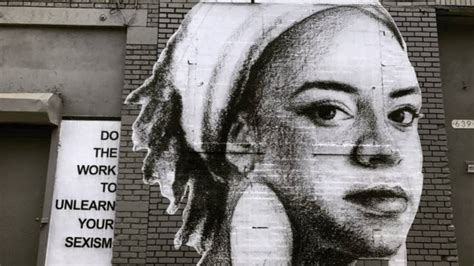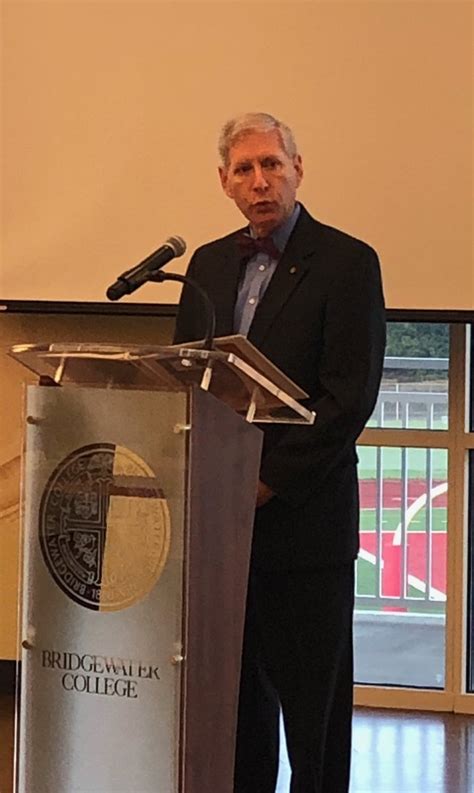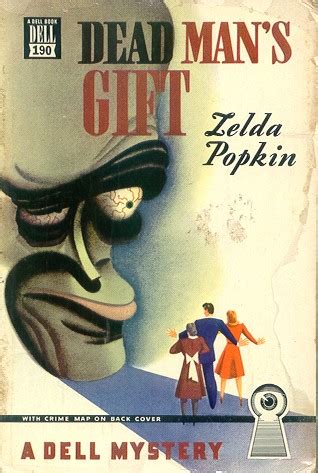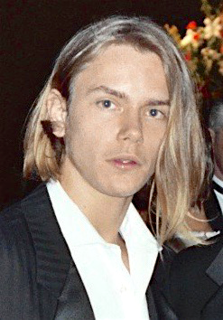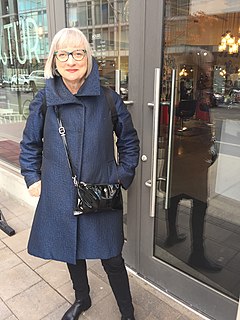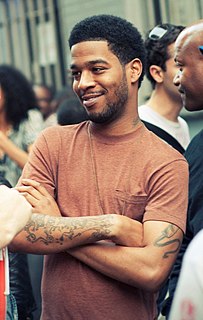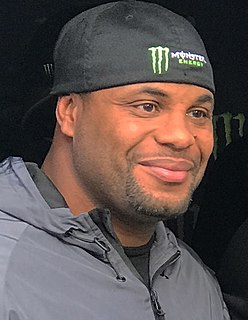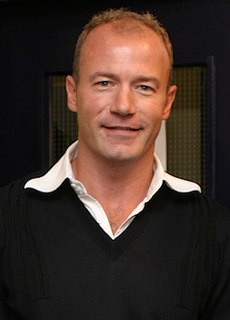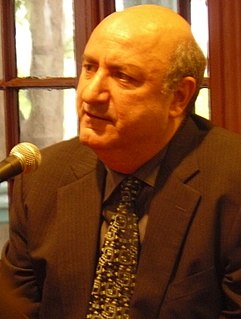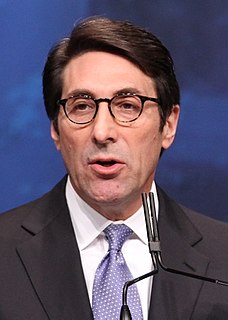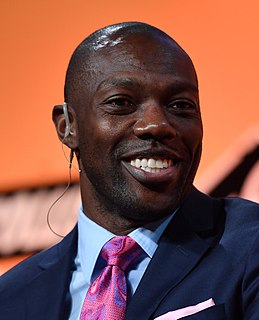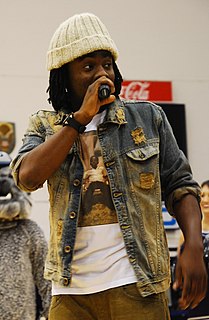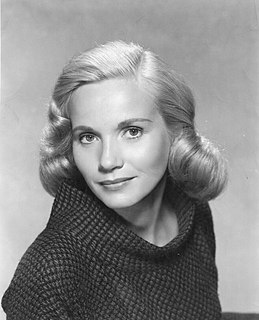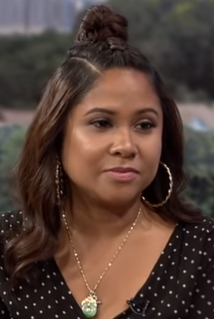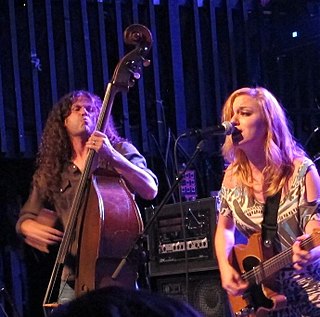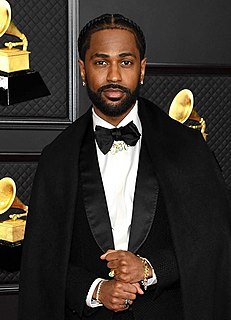Top 1200 Interviews Quotes & Sayings - Page 20
Explore popular Interviews quotes.
Last updated on December 22, 2024.
I do my best writing between 10 p.m. and 5 a.m.. Almost every friend I have who is a consistently productive writer, does their best writing between 10 p.m. and 8 a.m. My quota is two crappy pages per day. I keep it really low so I'm not so intimidated that I never get started. I will do the gathering of interviews and research throughout the day. I'll get all my notes and materials together and then I'll do the synthesis between 10 p.m. to bed, which is usually 4 or 5 a.m.
Language of the Gun shows why Bernard Harcourt has earned a reputation as one of our most provocative and informative analysts of the administration of criminal justice. Thoroughly interdisciplinary, he brings to bear on his subject a remarkably wide range of sources. Most striking are his probing interviews with at-risk youths which provide a fascinating and rare glimpse into how they think about guns and gun carrying. This book bristles with insight and information.
Long John would sometimes hold his interviews in the Carnegie Delicatessen, which is the most famous delicatessen in New York up by Carnegie. Let's see, 57th Street, you're down to like 50th Street and 7th Avenue... You'd go in there and everybody would be eating a heart attack on a plate, pastrami, malts, that kind of stuff. But it literally was the place where Woody Allen would go.
I enjoyed being what I was in radio, which some thought of as a shock jock although, to this day, I still can't figure out what I've done that's so shocking. As to my favorite interviews, I loved having my mother and father on. I also enjoyed talking to Elmo, who's a puppet. I found T.I.'s trying to be extra-cool very endearing. Tyra Banks was not the diva I expected her to be. I loved talking to her. And Simon Cowell is a really nice guy. Yeah! He's my fave, and he's handsome.
I'd never consciously left home to see a zombie movie. They were fine by me, but I had no intention of ever being in one. But I've been learning more about it as I've been doing interviews. I didn't even know there were specialist zombie magazines and clubs. I heard the other day that a radio station had asked people if they`d made preparations for an attack by zombies, and a staggering number of people replied yes!
Whenever you take a subject you're obsessed with or that haunts you, and make a movie about it, you're converting it into work units that need to be completed. You gotta turn it into a treatment, a script, a grant application, a bunch of forms to be filled out, a shooting schedule, casting sessions, auditions, shooting, editing, music compositions, the film festival circuit, interviews even. And by the time you've finished the process you're so sick and tired by something that was once very precious to you that you're done with it.
I've been criticized because I've had the temerity to speak out and done a couple of interviews since I left office. I don't find anything surprising about that. I don't say - I've been careful not to get personal in terms of my criticisms for my comment, but I think the issues are simply too important for the future of the nation for us to operate as though those of us who disagree somehow shouldn't speak out and be heard. I think we need to be heard.
When we started out we got a lot of positive press around the single 'Step Into My World', and a lot of Radio play. The single did really well, so we were in the spotlight straight away. I obviously had my history with Ride, but I didn't want to talk about that, so all the interviews centred around how I'd had these auditions and found the band members that way. I think people felt like that was not 'for real' enough or something.
In old interviews I was still worried about being judged. I think my life was about how can I keep myself in control. How can I just get through this and be okay? And, you know, you turn the corner. You realize that you're not imprisoned by your life or your circumstances or your genetics or anything. I really believe that we all have the ability to come out of our story. But you have to tell your story first in order to come out of it.
I think it's very important to get this stuff on film, not just the behind-the-scenes of the process, but also the interviews with the women. We're going to try to do some on-the-street filming, getting people's reactions to the work, and seeing if we can get some street harassment happening on film so people can see what we're talking about. It's important to have some type of documentation so people can see what happens when we create this artwork and why I'm creating it.
John Lennon was just one of us, another human just trying to get through the day, and help make tomorrow a little better. And he was willing to put his thoughts and feelings about all that into his music, and when he had the chance to speak in interviews. He was only around for a short time, but he learned so much and was willing to give his heart and mind to all of us. What he had to say still resonates with me, with all of his fans.
I write songs. Then I record them. And later, maybe I perform them on stage. That's what I do. That's my job. Simple. I don't feel comfortable doing interviews. My profession is music, and writing songs. I like to do it, but I hate to talk about it...Music is spiritual. The music business is not. Being famous was extremely disappointing for me. When I became famous it was a complete drag and it is still a complete drag.
Doing interviews is very different from working as an actor, because it's up to the journalist not only to understand what I'm trying to convey, but to convey that understanding through their process. And often times it gets manipulated, sometimes intentionally, by pulling things out of context. Some people may not appreciate your work and some may be incredibly moved by it. So that isn't the concern. You have to do what you can do, and share what you feel is appropriate to share in the moment. And then, it's out of your control.
You do not conceive a novel as easily as you conceive a child, nor even half as easily as you create nonfiction work. A journalist amasses facts, anecdotes and interviews with top brass. Enough of these add up to a book. A novelist demands quite different things. He has to find himself in his materials, to know for sure how he would feel and act and the events he writes about. In addition, he requires a catalyst — a person, idea, or emotion which coalesces his ingredients and makes them jell into a solid purpose.
From the first days of my career as an entrepreneur, I have always used my own and my team's lack of experience to our advantage. In fact, at our first venture, Student magazine, we used our newcomer status to secure great interviews and generate publicity - people were excited about our new project and wanted to get involved. Our inexperience fed our restless enthusiasm for trying new things, which became part of our core mission.
A significant number of people believe tribal people still live and dress as they did 300 years ago. During my tenure as principal chief of the Cherokee Nation, national news agencies requesting interviews sometimes asked if they could film a tribal dance or if I would wear traditional tribal clothing for the interview. I doubt they asked the president of the United States to dress like a pilgrim for an interview.
I don't want to get so lost in thinking about me and talking about me all the time in interviews. It's so nice to unwind and just look at other things and get out of yourself. It's hard to detach myself from myself without neglecting myself. You know what I mean? I don't want to get in to the habit of thinking about my career because when it comes down to it, it's not really that important. I could die tomorrow and the world would go on.
I'm not talking about what came later [after the American underground punk scene], indie music, or whatever you want to call it, but the music that came before that - that's an important story. So many interviews with musicians get the time or context wrong. You have these older bands, usually men, who tell stories about "Oh, we got into this huge fight, this guy punched that guy," that's the wrong sort of story. My view of the time is truly pioneering.
I suppose you do think about the time that's allotted to you more than when you were younger. The mortality thing obviously has a stronger pull for you. It's an imminent truth; it's not necessarily a bad thing. You realize - much earlier than my age now - that you won't be able to play for England's football team, just to take a really crass example. So you can't have that life again. Unless you believe in reincarnation or whatever. Reincarnation? That's a whole other question. I find people who talk about that sort of thing in interviews idiotic. And I don't want to go down with them.
Jim Jones used highly-edited videos and photos of Jonestown, showing what a supposed Eden it was. People were interviewed smiling and working in the fields, telling other church members to hurry down and join them. These interviews were staged; the people were told exactly what to say. Truth is, Jonestown never even produced enough food to feed everyone, and people were going hungry.
I listened more than I asked. There's a lot of information online, so many Youtube videos, countless interviews with all those obvious questions that were all answered for me. I just wanted to absorb her essence. I wanted to see the details, she has such mad style. I just wanted to see - the way she communicates with her hands, these gestures, her smile, how she moves through space.
The ticket out of the Depression was an education, a college degree. It really didn't matter if you knew anything. You just had to have the degree. My dad, up until the last two years of his life, thought he had failed miserably with me 'cause I didn't go to college. I mean, you've seen postgame interviews with the star of the game and the players always talk about how proud his parents are because he's the first guy in his family ever to attend college. I'm the first in my family not to! I'm the first of my family not to have a degree. It's thrown everybody for a loop.
I'm the wife Spike Lee deserves. A white woman, which he says he would never be with, so let's get someone really white. I am Spike Lee's wife from Hell. I'm white and weird and I won't pay enough attention to him. If he does any more of those angry interviews, I'm going to write him and see if he wants the wife he deserves.
I'm only thirteen, so I have role-models! But I've sort of experienced... my sister has always been my role-model because I've always seen her. She's been acting my whole life and she's grown up on film, so it's neat for me to get to travel around and do interviews, because I've always seen her doing it.
No news conferences? Interviews now only with friendly journalists? You can't be president or vice president and govern in that style, as a sequestered figure. This has been Mr. Bush's style the past few years, and see where it got us. You must address America in its entirety, not as a sliver or a series of slivers but as a full and whole entity, a great nation trying to hold together. When you don't, when you play only to your little piece, you contribute to its fracturing.
What an invaluable handbook! Lori A. May has done her research, knows her stuff, and, whats best, lets the programs speak for themselves through her extensive interviews. Theres a chorus of quotes from faculty, students, and graduates in The Low-Residency MFA Handbook. Anyone making the decision to apply for an MFA should consult this wise guide. Mays clarity and authority make it a gold standard.
I do interview senior candidates at the home office or many of our hotel or restaurant General Manager candidates. My two favorite questions are "Tell me about a failure in your career, what you learned from it, and how you've leveraged this lesson" and "All of us are misperceived at one time or another. What's the most common way you're misperceived in the workplace and why?" Both of these questions require a certain amount of self-awareness and a willingness to not give pat, normal answers that we offer experience in interviews.
Basically the movies I make are my life, so I choose how I want to live my life for the next two years. So that's a decision I have to make. At some point if I feel there are enough elements - it doesn't even have to have great characters or great stories - it's just elements that can get my excitement and curiosity for one or two years, then I'll jump in and I'll find out what that is. Then I have to do [interviews like this] and rationalize why I do this.
I think when I was doing my very first interviews, I probably brought a notepad and did ask people my first fifteen questions while sitting in a Starbucks or something horrible like that. And I found that, oftentimes, the most important thing at the very first interview is just establishing a personal connection and developing some sort of rapport so that I can go back to them again, and then maybe again, and maybe again after that.
Phil Robertson and his family are great citizens of the State of Louisiana. The politically correct crowd is tolerant of all viewpoints, except those they disagree with. I don’t agree with quite a bit of stuff I read in magazine interviews or see on TV. In fact, come to think of it, I find a good bit of it offensive. But I also acknowledge that this is a free country and everyone is entitled to express their views. In fact, I remember when TV networks believed in the First Amendment. It is a messed up situation when Miley Cyrus gets a laugh, and Phil Robertson gets suspended.
When I first knew Bob Dylan, he lived in the Village. And for a man who, years after, would disdain publicity or any attempts at interviews, whenever I'd write something about him, he'd be on the street corner saying, `When's it going to run? When's it going to run?' But I must say that album that was - it was the second album he did, and though I've never been a fan of his guitar-playing, he did - I have to admit, he did catch the Zeitgeist of the time.
I started doing cocaine to get through interviews, 'cause people wanted to know a lot about my personal life and I wasn't prepared for a 60 Minutes interview every time. Doing bumps I was able to get through the day, but then I would smoke weed to calm me down - it was the only way I could get through the day without people noticing I was doing it.
I don't want to lose ever. I don't want to lose at anything. I want to make weight faster than the guy that I'm fighting if we both go into the sauna at the same time. When we're doing interviews I want to have quicker wit so that I can make him feel stupid. I want to drink my water faster. And then when we get in the cage I want to beat him up. I don't think people really truly understand the extent that I go to try not to use.
Level 5 leaders are differentiated from other levels of leaders in that they have a wonderful blend of personal humility combined with extraordinary professional will. Understand that they are very ambitious; but their ambition, first and foremost, is for the company's success. They realize that the most important step they must make to become a Level 5 leader is to subjugate their ego to the company's performance. When asked for interviews, these leaders will agree only if it's about the company and not about them.
My first big acting performance was in the Marilyn Monroe biography piece, and it required frontal nudity. I talked to Mira Sorvino, my co-star, about how nervous I was because I didn't know how my mom would react. She said, 'Can I be completely honest with you? I've seen your mom in interviews, and she seems pretty screwed up. I don't think there's much you could do to shock a broad like that.' And from that moment on it was big nipples to the wind!
There is another side to me which people don't often see, but it's very hard for me to show that. When I do interviews, I'm talking to people I don't know and when you speak to a stranger you don't open up, do you? In my position, people are always looking for something to say about me. And anything I do say, given half-a-chance they'll turn it round into something spectacular so I've got to be very careful. That's why it's only my friends and family who know the real me. Now my wife, Lainya, she could tell you a few stories.
I think younger artists are often "students" of the rock press. They have their favorite rock star interviews and know how they're supposed to act. But I find that time helps a lot. If you have enough time you can sort of break that down just by being a normal person. And then they realize the interview isn't just a performance, and they can actually speak to you. I often try to get people into a space where they're not over-thinking what they're talking about and instead they're speaking emotionally, from within their experience.
Foreign news is considered an expletive. Thoughtfully written analysis is out, 'live pops' are in. 'Action Jackson' is the cry. Hire lookers, not writers. Do powder puff, not probing interviews. Stay away from controversial subjects. Kiss ass, move with the mass, and for heaven and rating's sake, don't make anybody mad- - certainly not anybody you're covering, and especially not the mayor, the governor, the senator, the president or the vice-president or anybody in a position of power. Make nice, not news.
I did interviews with most of the TechCrunch50 experts backstage and there was a common gripe about the companies launching there: Not enough passion, not enough swinging for the fences, not enough trying to change the world... One big exception was CitySourced - a company that excited Kevin Rose precisely because it was trying to build something that doesn't really exist today and would make a huge difference in people's lives. It was the most excited I saw an expert about anything over the two-day event.
I have observed that male writers tend to get asked what they think and women what they feel," she says. "In my experience, and that of a lot of other women writers, all of the questions coming at them from interviewers tend to be about how lucky they are to be where they are – about luck and identity and how the idea struck them. The interviews much more seldom engage with the woman as a serious thinker, a philosopher, as a person with preoccupations that are going to sustain them for their lifetime.
I have learned so much from my dad. Perhaps the biggest thing I've learned from my dad is how to be prepared at all times... whether it's for a big court case or a hostile media interview. My dad always says "Stick to your points, focus on what you are there to get across, and try not to get sidetracked."We are often trying to communicate complicated legal cases or explain laws, and it's important to keep going back to the 3 core points you want people to take away - from interviews, from our radio shows, from meetings, and from court.
But [Sunday] as you saw, it was obviously [the media] took some more than initiative to try to get me to kind of go down the wrong path. I know the last two teams that I've been on, I felt like I left those teams prematurely due to media interviews that I've done and things kind of taken out of context and they created sort of a media whirlwind in the locker room and things kind of went downhill from there. I'm just trying to do the best job I can do as far as answering the questions and trying to be a better teammate and not try to throw people under the bus.
When I started graduate school we did this publishing class where we learned about submitting and read interviews with editors from different magazines. A lot of them said they got so many submissions that unless the first page stuck out or the first paragraph or even the first sentence they'll probably send it back. So part of my idea was that if I have a really good first sentence maybe they'll read on a bit further. At least half, maybe more of the stories in Knockemstiff started with the first sentence; I got it down then went from there.
Any time having international interviews is a language barrier, you don't know how much you need to simplify what you're saying for it not to be damaged in translation. But culturally, there are some interesting phenomena. I get the feeling that the way rock music gets described in Germany, it is all like Rolling Stone circa 1975, taken to the 10th power. If you're a rock musician, you're part of the counterculture. Your music is like a critique of everything that is wrong with America.
Some interviewers aren't even interested. They're just doing it because they gotta do it. Life is nothing without passion. Whatever you're doing, at least be passionate about it because I'm passionate about what I'm doing. I'm passionate about the words I'm saying right now. Just be passionate. When the interviews is passionate, it's more conversational and we're not covering the same ground.
It's not always a conscious thing - I've never been that artist to come to the recording session with a concept of an album; I am a lot more intuitive. I usually start with the music and try to catch a feeling, a gut feeling. And then you need to do interviews and explain yourself more, in words. But during the process it's really about the gut feeling, and it's hard to explain. You're trying to find those moods that make you feel something, I guess.
Seth Rollins was just leaving Ring Of Honor when I was coming in, so I've heard him say very nice things about me in interviews and stuff. I always say nice things about him because of that respect I have for him. I watched him when I was working the independents while he was wrestling at Ring Of Honor, and I used to be blown away by his work then.
Every day, there'd be somebody interviewing me as a "lesbian living in Russia." It got to the point where I would joke that I now have two jobs. I work as a writer and a journalist, and I also work as a lesbian. There's a big difference between being out and having that be your sole identity, the only reason that someone is talking to you. My twelve-year-old daughter said, "I have a new job as well. I work as the daughter of a lesbian," because she was also giving all these interviews.
For all our penny-wisdom, for all our soul-destroying slavery to habit, it is not to be doubted that all men have sublime thoughts; that all men value the few real hours of life; they love to be heard; they love to be caught up into the vision of principles. We mark with light in the memory the few interviews we have had, in the dreary years of routine and of sin, with souls that made our souls wiser; that spoke what we thought; that told us what we knew; that gave us leave to be what we only were.
The more readings a novel has, even contradictory, the better. In journalism, you talk about what you know; you have provided yourself with records, you have gathered information, you have performed interviews. In a novel, you talk about what you don't know, because the novel comes from the unconscious. They are very different relationships with words and with the world. In journalism, you talk about trees; in the novel, you try to talk about the forest.
Wrapping rubber bands around a watermelon is not journalism. It is entertainment. But the key to success in media has always been a broad mix of serious reporting and entertainment. The New York Times does not make its money on reports about Iraq and Syria. It makes money on its gardening section, food and, yes, stories about cats. "The Today Show" is a very successful program because it is a mix of the celebrity chef and the crazy pet who does the rolls and serious news and interviews.
North Korea is no threat at all. I have already spoken about it during countless televised interviews. I visited North Korea and mingled with its people. There, nobody wants war. The North Korean people paid a terrible price for their independence. Its civilians were murdered mercilessly in tunnels by Western forces; its women were brutally raped, entire villages and towns leveled to the ground, or burned to ashes. All this is never discussed in the West, but is remembered in North Korea.
I remember I did quite a lot of interviews when the book and the CD came out, and I did a drivetime interview for Radio London or something. You wouldn't immediately associate the music on Ocean Of Sound with drivetime radio, but people found things that they liked, and the DJ was playing some records at 5 o'clock in the afternoon on a weekday.The man who was playing them said to me, "That Peter Brotzmann track, it's like having your head boiled in acid."
So many interviews, even ones that I consider really intelligent and good writers, will do the, like, 'Oh, you're not taking your clothes off like Miley Cyrus and all these girls' thing, which to me is just the weirdest thing to say to someone. ... Now when people are like, 'Tell me what you think of Miley!' I'll say, 'What do you think of Miley?' and they'll flounder and say, 'Well, I think she's really talented...' and I'm like, there you go.
When we first started 'The Breakfast Club,' we wanted to have a video person dedicated to filming our interviews and sending out content. I think having video clips that could go viral, or get picked up by media outlets, helped us get syndicated, because people in other cities were familiar with us from having seen our videos.
I believe we should work to end all racism in American society and staunchly defend the inherent rights of every person. I have clearly stated in prior interviews that I abhor racial discrimination and would have worked to end segregation. Even though this matter was settled when I was 2, and no serious people are seeking to revisit it except to score cheap political points, I unequivocally state that I will not support any efforts to repeal the Civil Rights Act of 1964.
When I do interviews, sometimes I'll just be like "Why the hell did I say that?" because after I hang up the phone I realize there were so many things I could have said, but my brain just goes on lockdown. There's something about having conversations with people that's so much different from just singing and playing guitar. And I think a lot of people are actually performers because of that. I can't really explain why. It's like just the only chance you have in life to feel really good and outgoing.
Between me and my wife, there's this joke where I'll be doing some fun interview, and I'll get off the phone and be like, "That guy was an idiot." A lot of times, interviews are like being asked a list of questions. Invariably, there will be this part where they think you're a writer for Letterman: "Just off the top of your head, tell me the 10 most influential bands on you." And you're actually asked to come up with a spontaneous list. It's like, "Dude, I'm not living in High Fidelity."



